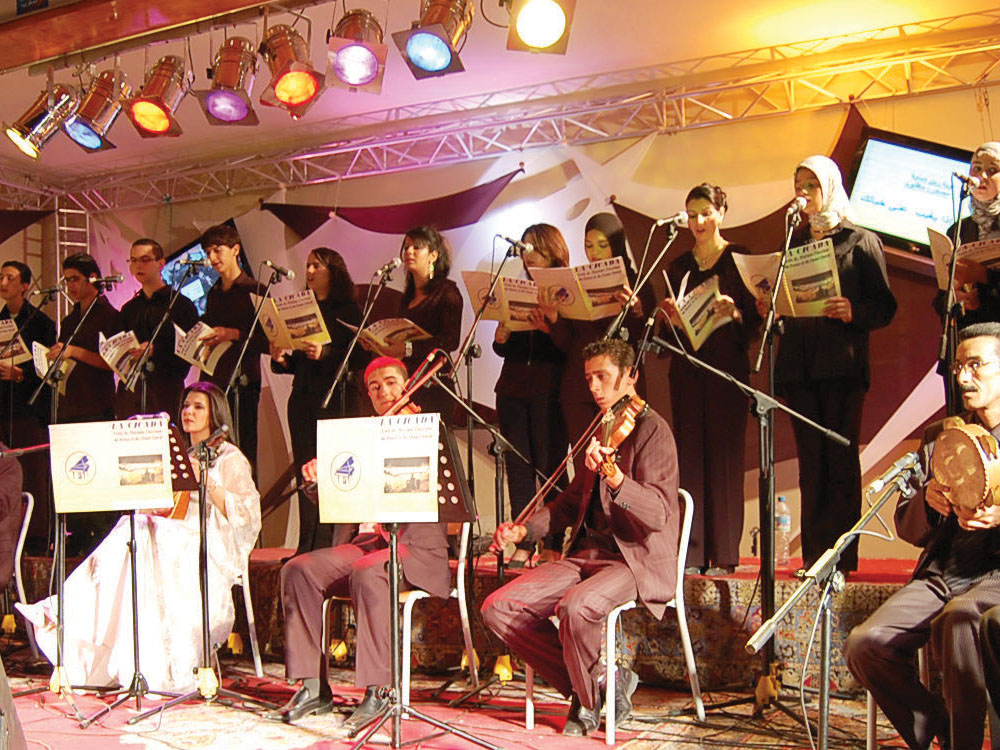The impact of foreign music on Morocco's immaterial cultural heritage: The music and songs of Granada
Issue 55

Mohamed Al Isawy
Morocco
Morocco has long been a rich melting pot of musical traditions with numerous cultural influences (Berber and Arab) from the Mediterranean region and Africa. It has always been a crossroads for the ancient civilisations that occupied the Mediterranean.
It is estimated that there are more than fifty musical styles in Morocco based on factors such as the distinction between rural and urban areas, dialects or the environment, which includes plains, mountains, deserts and coasts.
Traditional music, folk music and contemporary music are three main classes of Moroccan music, and they all represent historical characteristics of the diverse cultural elements that make up the Moroccan identity. In the south, there is the imprint of Andalusia's intricate singing and some traces of the Greco-Roman past.
Local and foreign elements shaped the character of Morocco’s musical heritage, contributing in some ways to the enrichment and strengthening of intangible cultural heritage. Granadian singing is considered one of the most prominent variations in musical style that came to Morocco from Andalusia’s Islamic civilisation.
Over time, this lyrical style grew extensively; it even formed part of the identity of Moroccan society, demonstrating its value as a way of representing Moroccans at the national, continental and international levels.
It is possible to say that the art of Granadian singing has deep historical roots, and we can observe its significant influence on the folk arts today. It includes references to the names of pioneers, lyrics, melodies, shifts and musical instruments.
The cities of Oujda and Rabat continue to contribute to the preservation of this singing style through the ancient music bands founded by pioneers or youth bands that work diligently to make it relevant to the modern generations and to help it spread outside Morocco by participating in international festivals and forums. Institutions also play an important role in helping to preserve Granadian singing.
Although it is a source of Morocco’s intangible cultural heritage, it has become an essential component of Moroccan identity. institutions such as the Ministry of Culture attempt to introduce and promote it on a large scale and to support bands so that they will continue performing and creating art.


































































